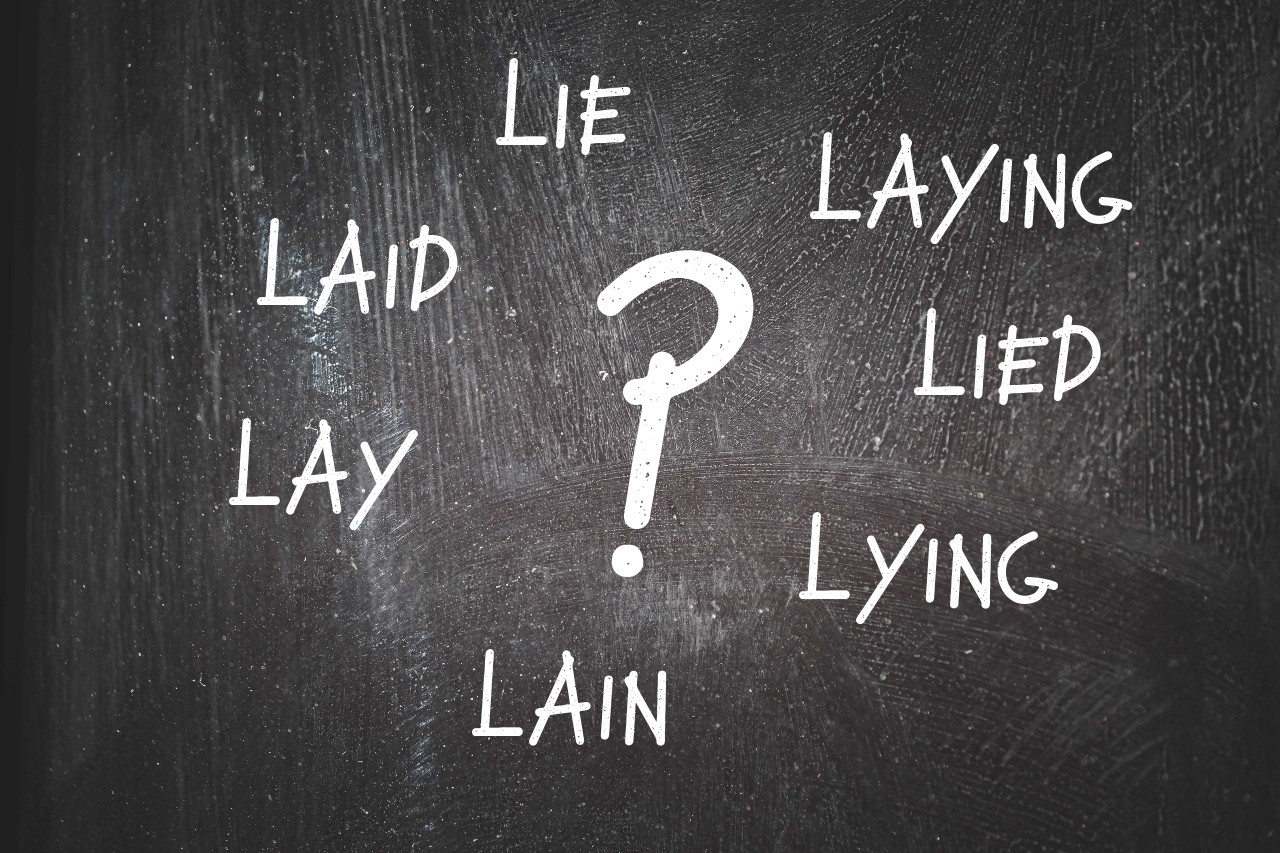In response to a recent question from several of my students, here’s a grammar post about two confusing verbs: lie and lay. (Actually, it’s three verbs, but we’ll come to that later.)
TO LAY
‘To lay’ means to put something down. It is followed by a direct object, i.e. it’s a transitive verb—after it we have to use a noun or a pronoun.
Take this blanket and lay it on the ground.
Its Simple Past and Past Participle form is LAID:
He laid the books on the table.
We have laid the foundation for our future cooperation.
The Present Participle, which we use to form all continuous tenses is LAYING:
We are laying down new rules.
This verb is often used with different prepositions, forming phrasal verbs with various meanings. Here are a few examples:
- to lay down: to define and implement a rule; to put something down
- to lay off: to make someone redundant
- to lay over: to stop somewhere for a short time during a journey
- to lay up: be / stay inactive due to illness or injury
TO LIE
‘To lie’ means to be in a horizontal position. It is not followed by a direct object, i.e. it’s an intransitive verb.
I feel very sleepy. I’m going to lie down.
BE CAREFUL: the Simple Past form is LAY – same as the infinitive / present tense of ‘to lay’:
He lay in bed all day because he was unwell.
The Past Participle form is LAIN:
She had lain on the sofa for some time before she got up.
The Present Participle is LYING:
How long have you been lying in the sun? Your skin is so red!
This verb is also used to make a number of phrasal verbs, some of which are very frequent, such as:
- to lie around: to leave something out of place; spend time relaxing, not doing anything
- to lie ahead: to happen in the future
- to lie in: to stay in bed later than usual
TO LIE = to deceive
Finally, there’s the verb ‘to lie’, meaning to say something untrue in order to deceive. This verb is regular (just be careful with spelling): its Past Simple and Past Participle is LIED, and the Present Participle is LYING.
Stop lying to me!
I have never lied to anyone.
To recap, here’s the overview of the main forms of these three verbs:

You can now practise these verbs a bit using the online grammar exercise I’ve prepared on this topic.

